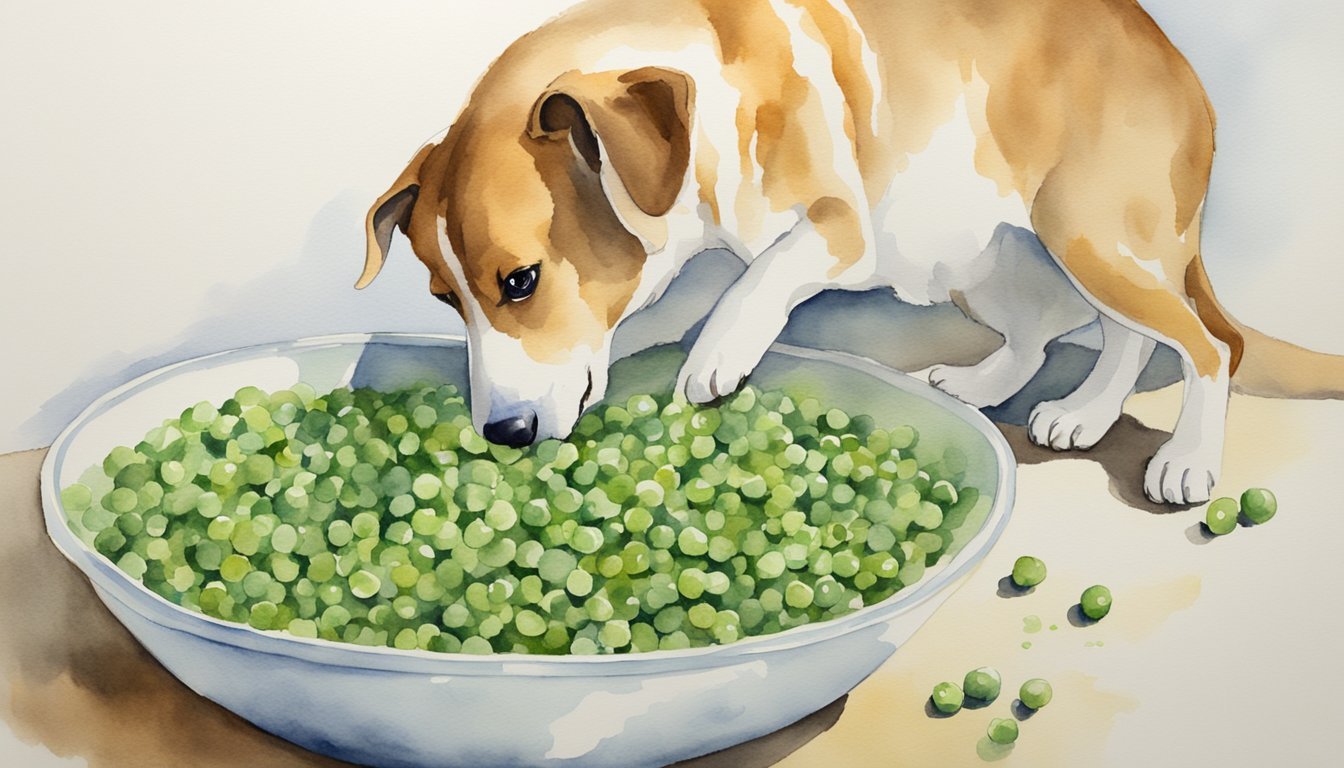Health Benefits and Nutritional Value of Peas for Dogs
Peas are a nutritious addition to a dog’s diet, providing a variety of vitamins, minerals, and other essential nutrients. They offer health benefits such as aiding in digestion and supporting the immune system while being a low-calorie snack option.
Nutritional Content of Peas
Peas hold a broad spectrum of nutrients essential for canine health. They are a good source of plant-based protein, which is necessary for muscle maintenance and repair. The dietary fiber in peas also contributes to a feeling of fullness, which can help in weight management.
Vitamins and Minerals in Peas
The vitamins in peas, such as vitamin A, vitamin K, and various B vitamins, are crucial for maintaining good canine health. Vitamin A supports eye health, while vitamin K plays a role in bone health. In terms of minerals, peas are a source of iron for healthy blood, potassium for muscle function, and zinc for immune support.
Fiber and Protein for Digestive Health
Peas are rich in dietary fiber and protein, which can be beneficial for a dog’s digestive health. Fiber aids in smooth bowel movements and contributes to overall gut health. Protein, on the other hand, is necessary for various bodily functions, including tissue repair and enzyme production.
Low-Calorie Treat Option
Offering peas as a low-calorie treat can be a smart way to reward dogs without contributing to weight gain. Since they are low in calories but high in nutrients, peas can be a healthy snack in moderation, fitting well into a balanced diet for dogs.
In conclusion, incorporating peas into a dog’s diet can bring a variety of nutritional benefits, from enriching their nutrient intake to aiding their digestion and maintaining optimal health.
Considerations for Feeding Peas to Dogs

Peas can make for a healthy addition to your dog’s diet when chosen and administered correctly. They are often included in commercial dog food and may serve as a nutrient-packed treat when fed properly.
Safe Pea Varieties and Forms
Green peas, garden peas, sugar snap peas, and snow peas are generally recognized as safe for dogs to consume. Both fresh peas and frozen peas are acceptable but should always be served plain without any added butter, salt, or seasoning. Avoid canned peas due to their excessive added sodium and preservatives. Peas can be a nutritious treat for dogs, providing essential vitamins, minerals, and fiber to support their overall health. However, they should be given in moderation, as excessive consumption may cause digestive upset. Unlike concerns about how long milk lasts, peas do not spoil quickly, especially when stored properly in the refrigerator or freezer.
Potential Health Concerns
While not inherently toxic, peas could present a choking hazard or cause digestive issues if not properly prepared. They are also high in purines, which can lead to kidney stones and exacerbate kidney issues in predisposed dogs. Rarely, some dogs may have adverse reactions including vomiting or diarrhea after eating peas. Additionally, a connection has been suggested between peas in the diet and heart disease such as dilated cardiomyopathy in dogs.
Feeding Guidelines and Moderation
Consult with a vet to determine if peas are appropriate for your dog. Typically, peas should only constitute a small percentage of a dog’s total diet, ideally no more than 10% of their daily food intake. Introduce peas into their diet gradually to monitor for any digestive upset. Recognize that while peas are a low-calorie snack, moderation is key to avoiding weight issues and potential nutrient imbalances.
When feeding pea pods, be attentive as they also present a risk of choking. Remember that while peas are safe for dogs, any new food should be introduced into your dog’s diet with care, starting with small amounts and noting how they react before making it a regular treat.

